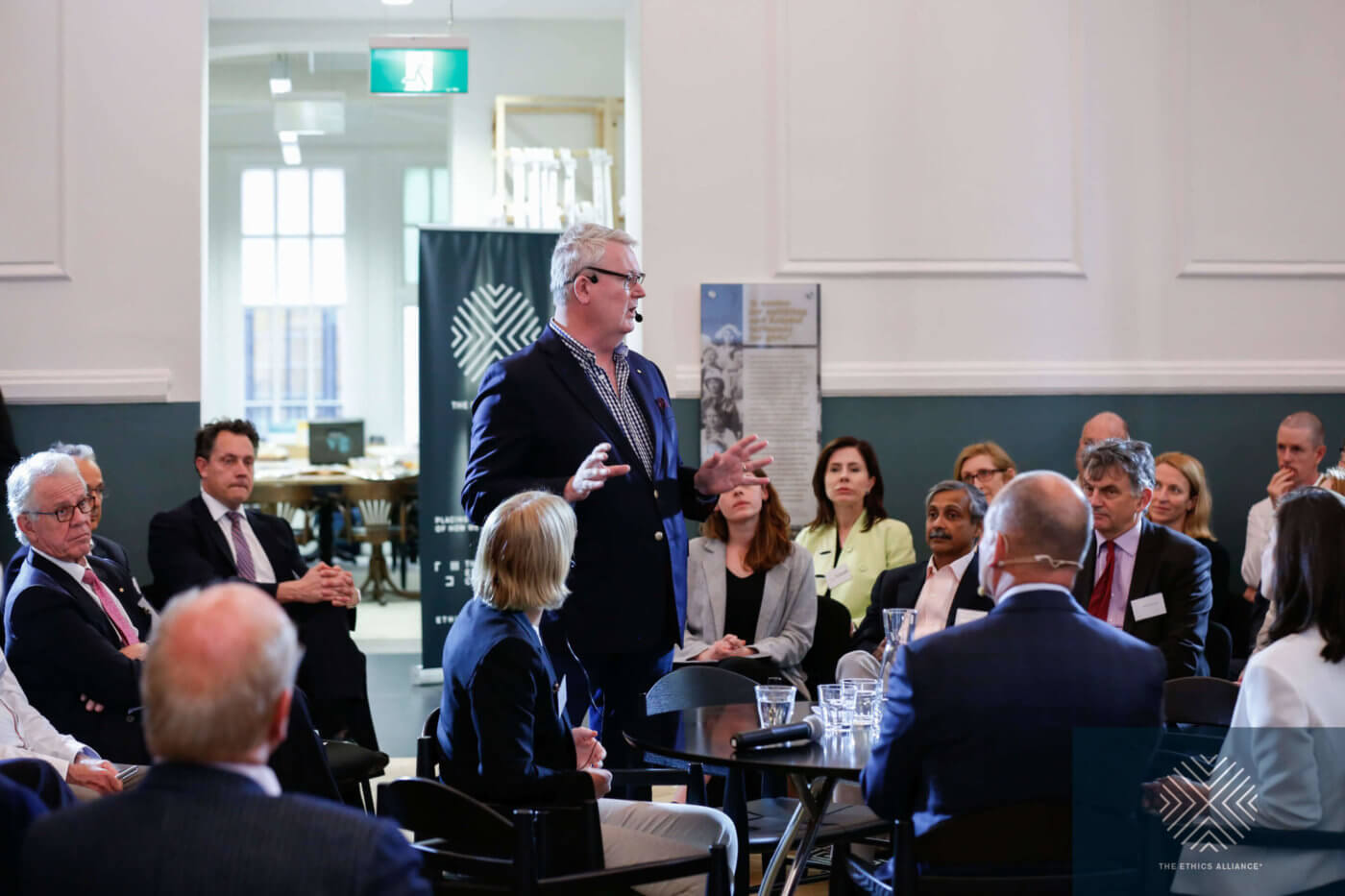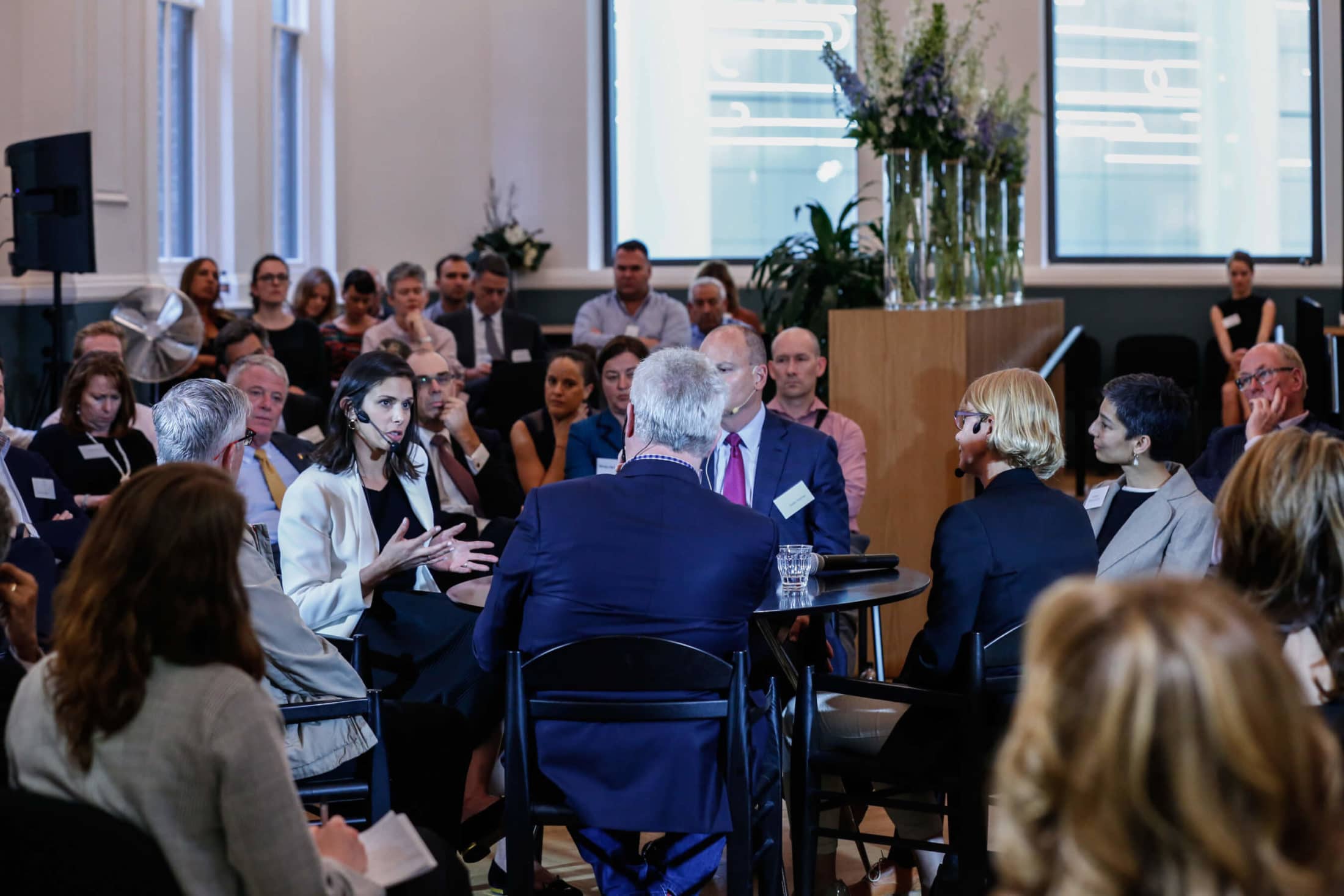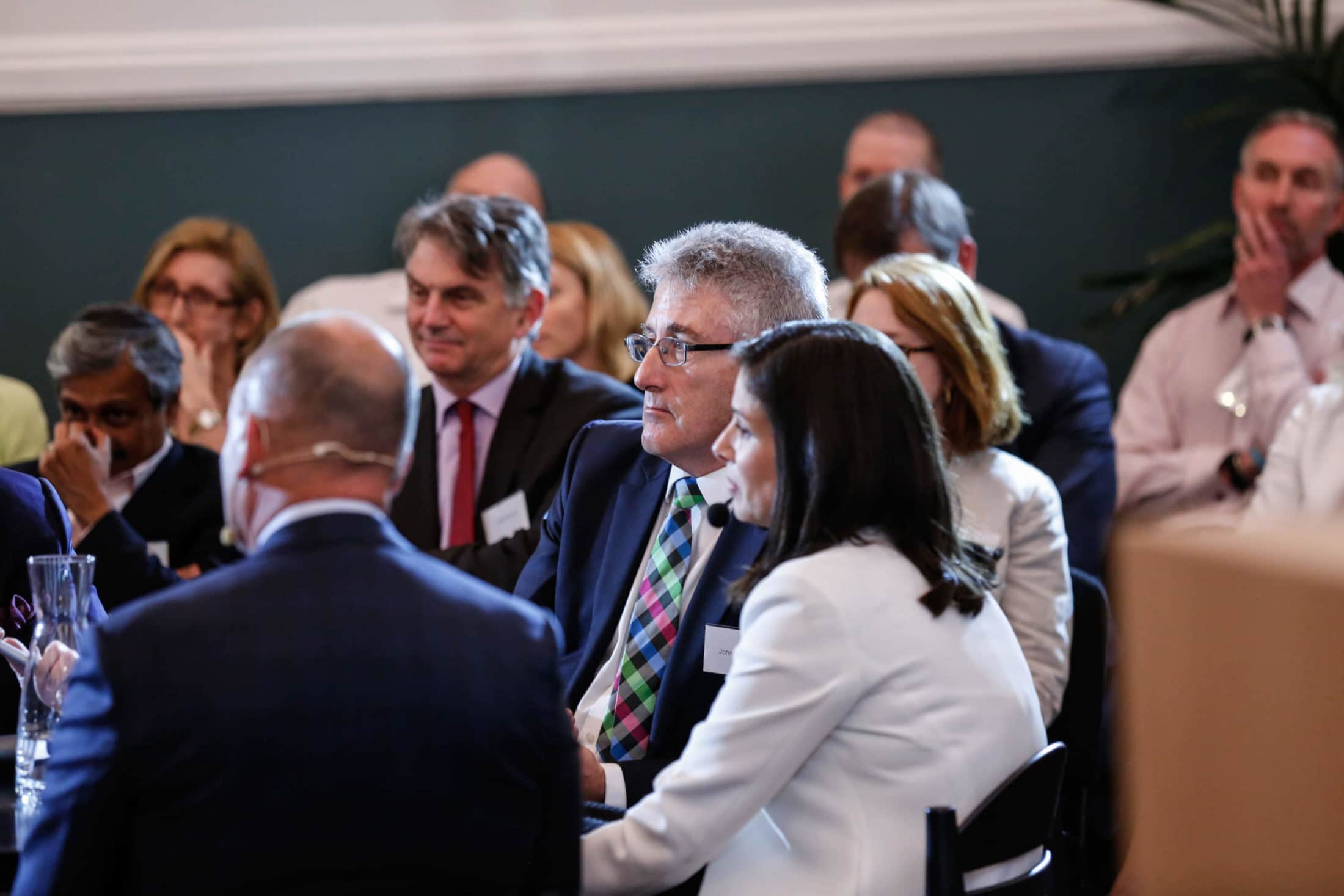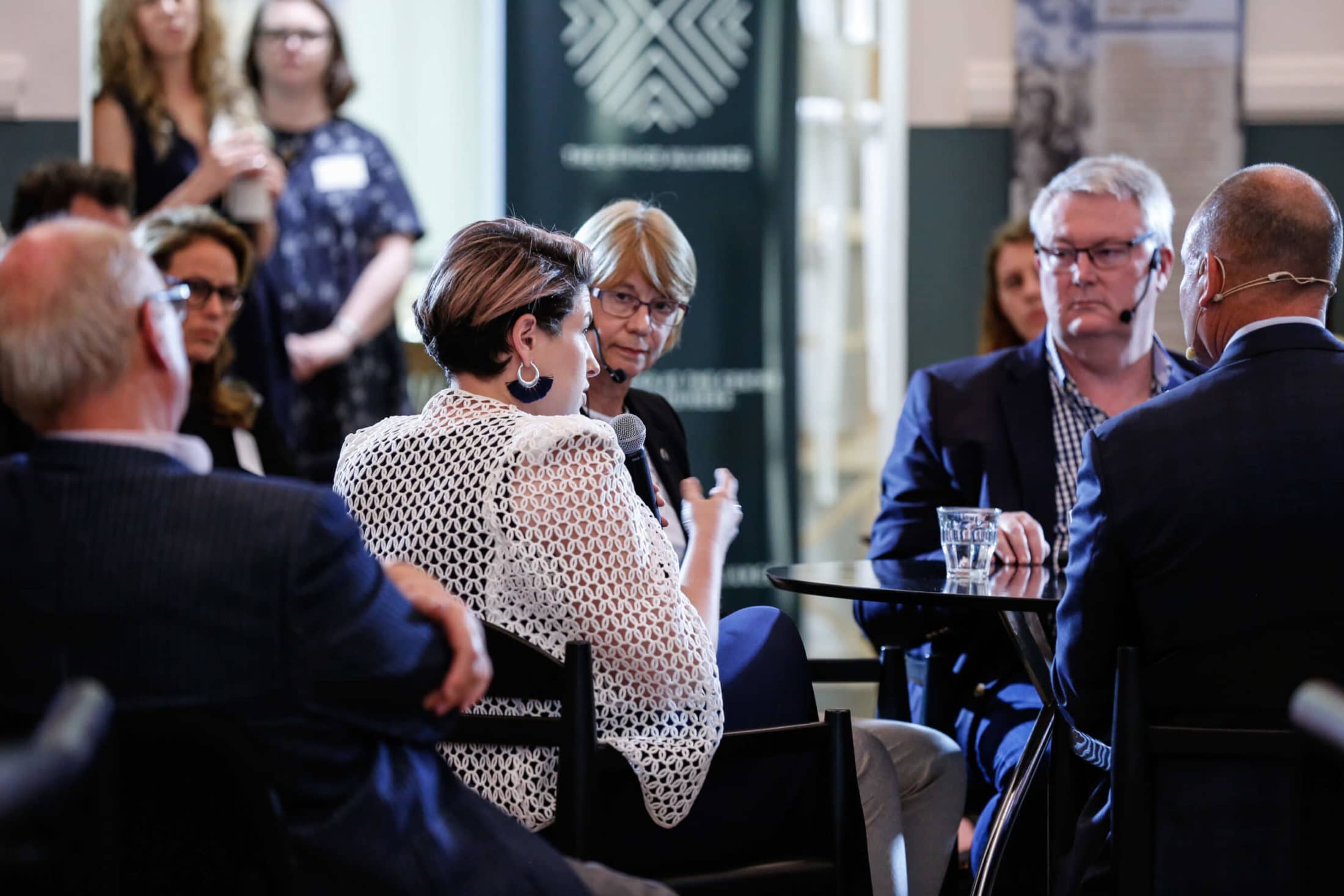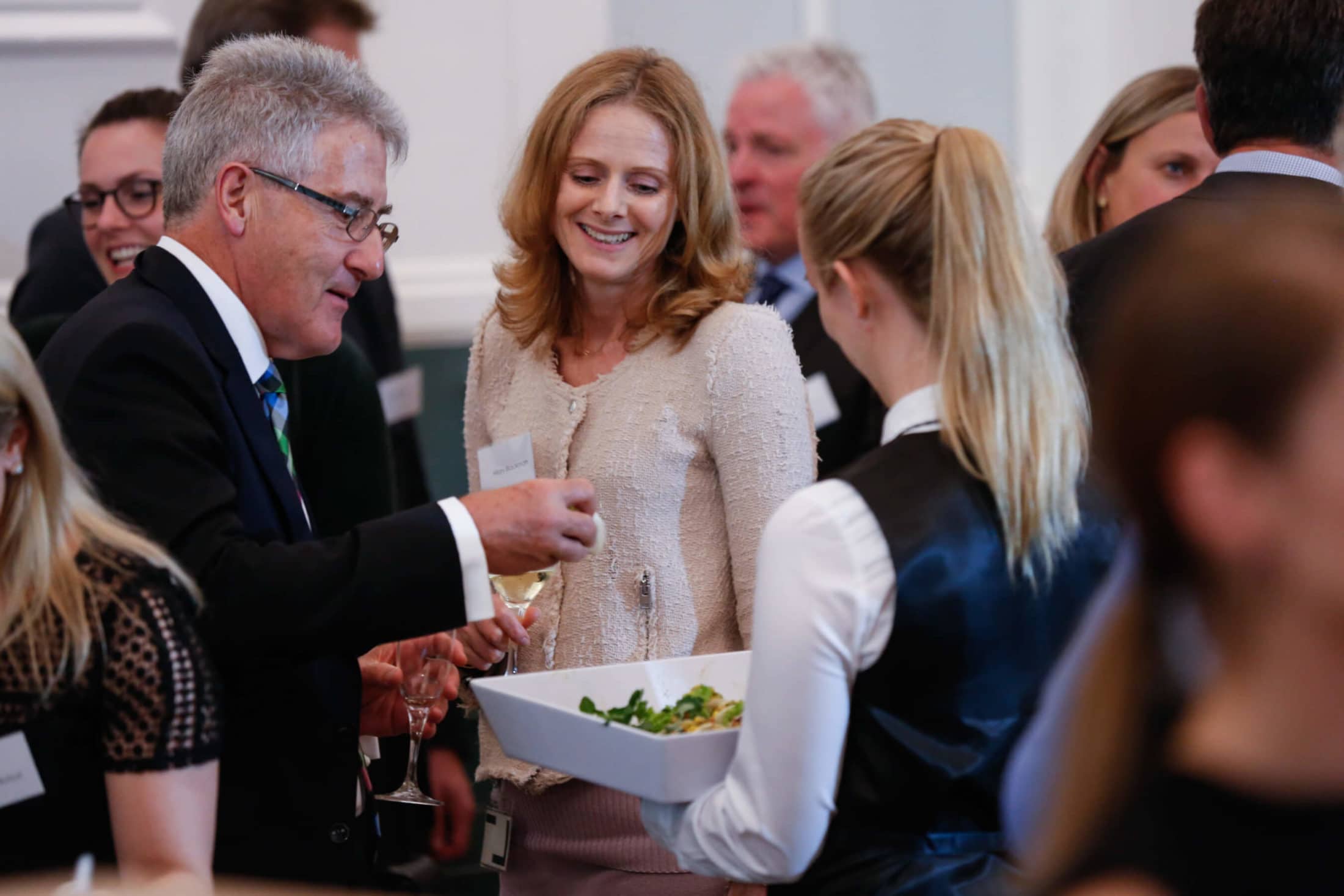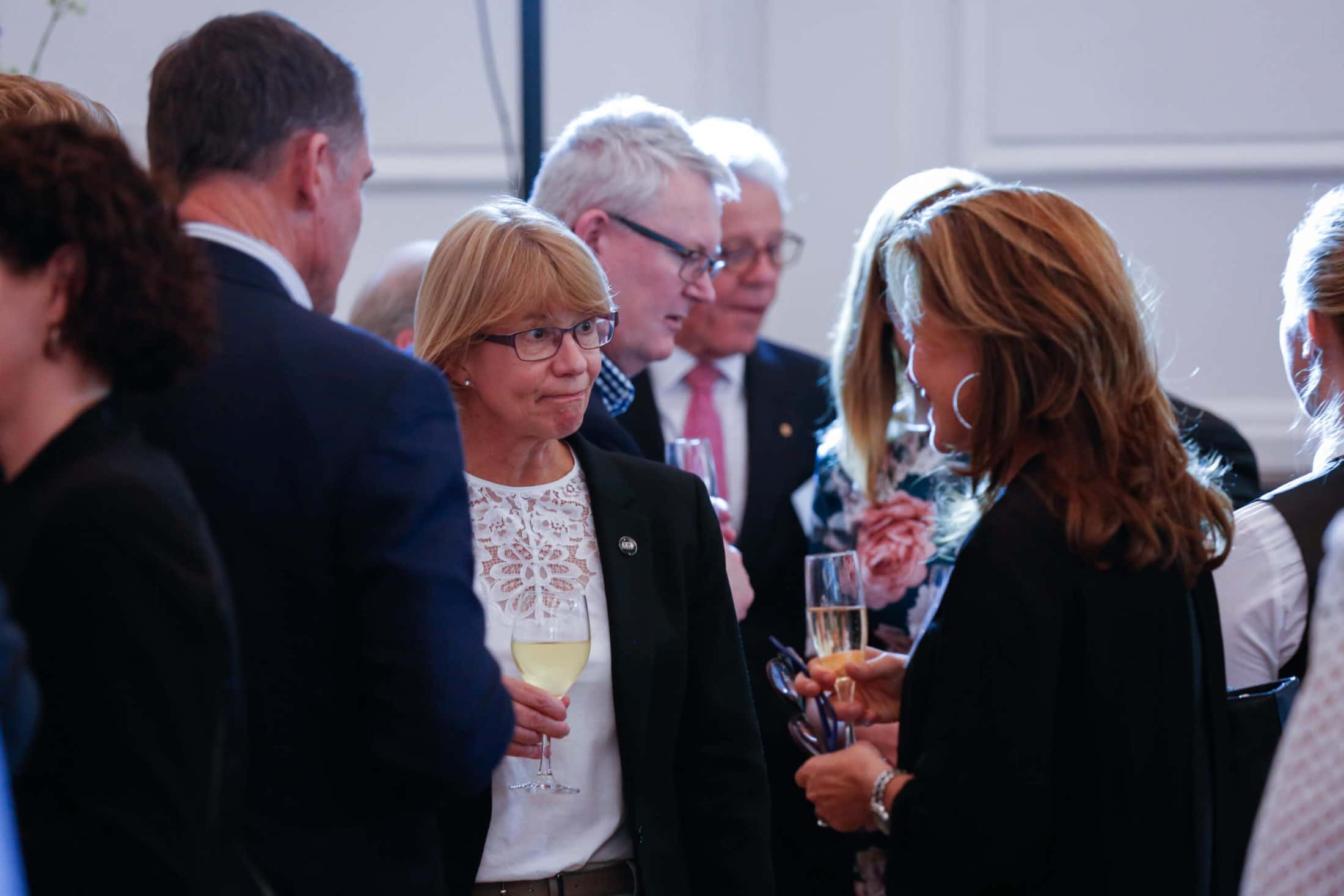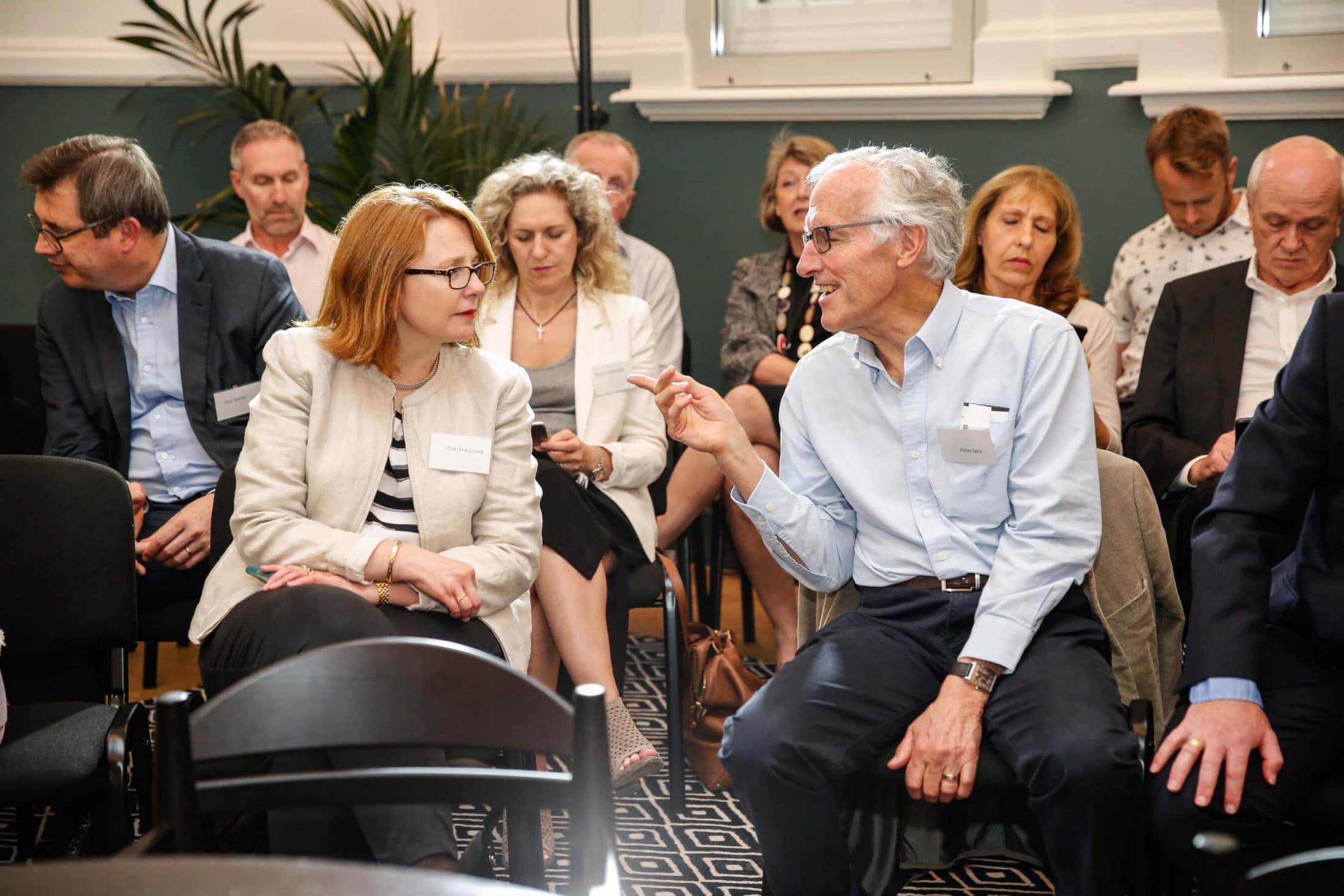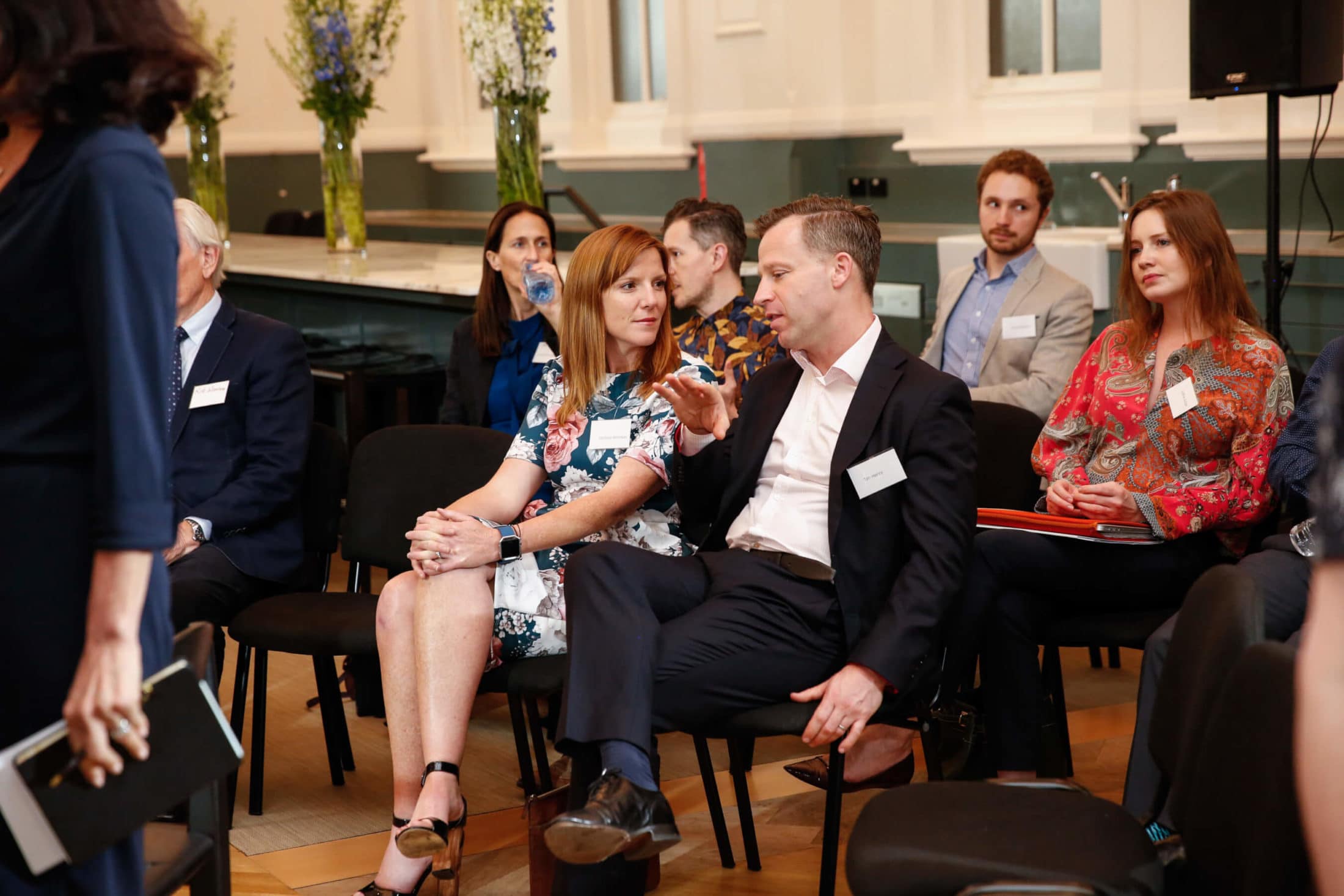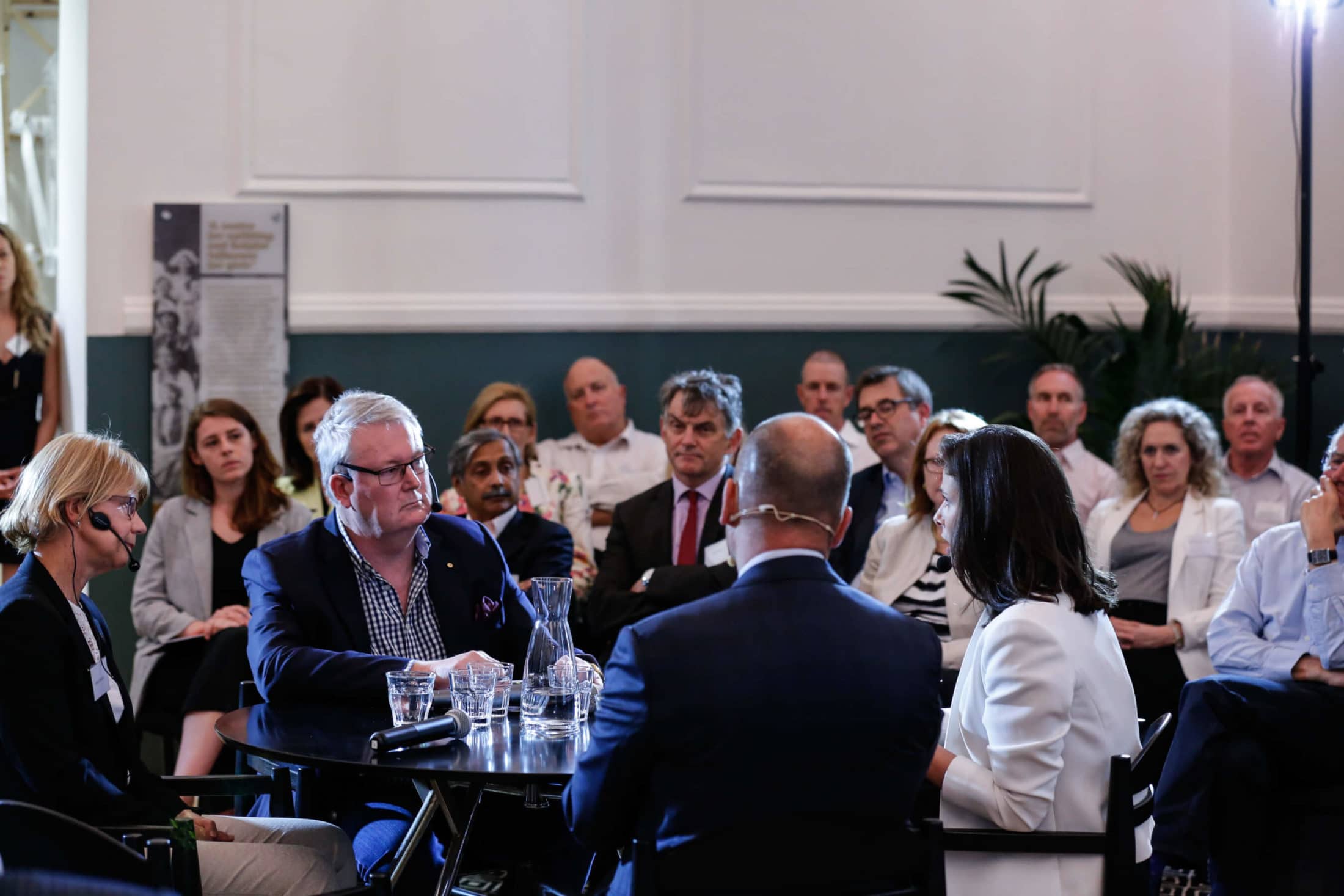How cost cutting can come back to bite you

How cost cutting can come back to bite you
Opinion + AnalysisBusiness + Leadership
BY Fiona Smith The Ethics Centre 1 JAN 2018
When former Mediacom chief executive Jon Mandel revealed a rampant practice of “kickbacks” in the advertising industry two years ago, media agency CEOs around the world ducked for cover.
Media agencies, that book advertising space for clients, were essentially being paid twice for the same pieces of work and, often, not disclosing it.
While advertisers are questioning the allegiances of their agencies, those same agencies may reply, “What do you expect when your cost cutting effectively reduces our fees and commissions to zero?”
Marketing management consultant, Darren Woolley, says it is time to consider the ethical impacts of a cost-cutting culture.
“I think it is interesting to see how ethics are quickly reframed or compromised, based on profit”, says Woolley, founder and CEO of TrinityP3 Marketing Management Consultants.
In the case of the media agencies, their duty to clients is to find the most effective advertising space for their clients at the best price.
However, things become complicated when the media owners of print, radio, television, and websites started handing back a proportion of the client’s media spending to the agencies as an incentive to get more of their business.
Those “rebates” were often not disclosed to the clients and were often not passed on. They could be from around 1.67 percent to 20 percent per cent of “aggregate media spending” and took various forms.
“Clients could not be sure that the advertising space purchased was the right strategy for them, or just the most lucrative for the media agency.”
An investigation commissioned by the Association of National Advertisers (ANA) in the US also revealed media agencies were buying heavily discounted media space and not passing on or disclosing those savings to their clients. The agencies’ mark up on these transactions ranged from 30 to 90 percent.
Mandel’s “truth bomb”, delivered at a conference in the US, and the ANA report confirmed suspicions that media agencies around the world may no longer be acting in the best interests of their clients.
Clients could not be sure that the advertising space purchased was the right strategy for them, or just the most lucrative for the media agency.
Were they being pushed into digital advertising, for example, because it offered more lucrative rebates? Were their advertisements being seen by the right people in the right places?
Woolley says instances such as these have eroded trust but are the result of a number of factors affecting agency profitability, including industry disruption, rampant discounting, and endless expectations of cost-cutting by clients.
“We have been in a world of cost-cutting for ten years at least”, says Woolley.
Media agencies are also under pressure from the large holding companies that are often their owners. The holding companies and their shareholders expect to see rising profits each year, irrespective of market conditions.
“The industry is struggling. The traditional remuneration models – the way money moves through the industry, has changed. Firstly, there is less of it and there is a constant demand to do more for less”, says Woolley
“The obsession with cost is at the very core of this issue about ethics and ethical behaviour.”
Woolley says clients should be aware their own cost-cutting has contributed to agencies trying to find new ways to get paid.
“It is interesting to see at which point they [agencies] are willing to do something they wouldn’t normally do, willing to act in a way that is not in the best interests of their clients, but is in the best interests of their own company.
“To me, that is the interesting tipping point. What does it take?”
Woolley says agencies are not out to do their clients harm, but the system is supporting harmful behaviour.
That system includes an expectation that everything should always get cheaper and profits should always increase. Clients over recent years have cut their fees and commissions to media agencies from about 10 percent to around 3 or 4 percent and less, he says.
Melbourne Business School Marketing professor, Mark Ritson, has written that it is possible some media agencies are now effectively working on zero commissions and their only remuneration is through kickbacks from media owners.
“Most experts estimate that if you were to properly assess the revenue streams funding any major media agency, rebate income would significantly, and perhaps in some cases completely, overshadow commission income”, Ritson wrote in a column in The Australian newspaper in October.
Woolley says that with fierce competition from digital media owners, kickbacks have grown dramatically. Traditional media owners (newspapers, radio, and television) used to budget 20-30 percent of revenue as sales incentives, discounts, bonuses, or rebates.
But the owners of websites and social media platforms, which do not have the labour and production costs of newspapers and broadcasters, can “rebate” up to 90 percent of revenue, says Woolley.
This means there is a clear incentive to steer client advertising to digital platforms, whether it is the most effective strategy or not.
Since the widespread practise was discovered, most large advertisers have closed the kickback loophole by drafting contracts that ensure savings are passed on and don’t only benefit the agency middlemen.
“Agencies should be rewarded for delivering value and performance, not just for reducing costs.”
Some have also mitigated the risk by dividing their advertising work between multiple agencies “to keep them honest”, says Woolley.
Getting the advertising and marketing industry back on a sustainable footing will take a lot more than encouraging clients to pay a fair price for their agencies’ work or allocating a reasonable budget towards effective advertising campaigns.
Marketing executives have told Woolley they cannot convince their own chief financial officers to pay their agency more – even when that lack of investment is resulting in ineffective campaigns.
“But it is not working as it is, so everything they are spending is a waste and an increase in spending could make it functional”, he says.
Woolley says the advertising and marketing industry needs to change the conversation if it wants to survive. “It has been about cost for the last 15 years. It is not easy, but the way forward is to actually talk about value”, he says.
“Cost is a downward spiral to zero.” Agencies should be rewarded for delivering value and performance, not just for reducing costs, he says.
“By considering an ethical approach, rather than just a financial or cost approach, it will open up possibilities for people to do and think differently because, certainly, we are in a spiral.”

This article was originally written for The Ethics Alliance. Find out more about this corporate membership program. Already a member? Log in to the membership portal for more content and tools here.
Ethics in your inbox.
Get the latest inspiration, intelligence, events & more.
By signing up you agree to our privacy policy
You might be interested in…
Opinion + Analysis
Business + Leadership
Feel the burn: AustralianSuper CEO applies a blowtorch to encourage progress
Opinion + Analysis
Business + Leadership
Accepting sponsorship without selling your soul
Opinion + Analysis
Business + Leadership
How can Financial Advisers rebuild trust?
Opinion + Analysis
Business + Leadership, Relationships
There’s no good reason to keep women off the front lines
BY Fiona Smith
Fiona Smith is a freelance journalist who writes about people, workplaces and social equity. Follow her on Twitter @fionaatwork
BY The Ethics Centre
The Ethics Centre is a not-for-profit organisation developing innovative programs, services and experiences, designed to bring ethics to the centre of professional and personal life.
Feel the burn: AustralianSuper CEO applies a blowtorch to encourage progress

Feel the burn: AustralianSuper CEO applies a blowtorch to encourage progress
Opinion + AnalysisBusiness + Leadership
BY The Ethics Centre 1 JAN 2018
It would be nice to think business is stamping out bad behaviour because it is the right thing to do. But that rarely is the case.
The growing pressure from regulators and the community mean employers have little choice but to clean up their acts, says Ian Silk, the CEO of Australia’s biggest industry superannuation fund.
He’s no stranger to a bit of pressure, adept at applying the “blowtorch” to hasten positive change. With $125 billion in assets, AustralianSuper was an activist shareholder in voting against the remuneration report of the Commonwealth Bank of Australia last year.
“The more controversial the issue, the more vociferous are the people who have strong views either way and, sometimes, you are in the middle of it and you have to make a judgement as to which way you will go.”
Previously, Silk had spoken out about the need for bonuses to be awarded for exceptional results, not just for performing the required tasks and, in the case of CBA, was arguing for more rigour around the bonus process.
The fund has also pledged to vote against the appointment of male non-executive directors where there are no women on the boards.
In an interview with The Ethics Centre, Silk says AustralianSuper’s high profile brings an obligation to speak out on “certain issues”.
“The more controversial the issue, the more vociferous are the people who have strong views either way and, sometimes, you are in the middle of it and you have to make a judgement as to which way you will go”, he says.
Ethics in business is a hot topic, particularly in the financial services sector.
“[It is], in a very large measure, a response to the egregious behaviour that is now so well publicised and readily-known by the public”, says Silk.
“Everybody knows unethical behaviour when they see it and I think there is a move back to appropriate norms. I think there is a recognition that much of the bad behaviour in the financial services sector is wrong.”
Silk says it is difficult to discern if this revitalised interest in ethics is deeply-felt, or whether it is a protective measure to avoid getting caught and penalised
“But I think there is a slow improvement in behaviour, much of it regulator and government led, but much of it community-led, consumer-led, some industry associations take a strong position on it.”
In terms of standards in his own organisation, Silk says he had been confident that the culture and behaviours at AustralianSuper would stand up to scrutiny. This is partly because, as a member-organisation, its sole purpose is to act in the interest of members and this provides a de facto ethical framework, he says.
However, earlier this year, he decided to get a second opinion. The Ethics Centre was engaged to undertake a “culture audit” to test whether the fund’s policies, procedures and practices were aligned with its purpose, values and principles.
“In my darkest moments, I just wondered if we had all drunk the Kool-Aid”, he says.
The results were gratifyingly positive and were affirmation that AustralianSuper and its 550 staff are on the right track, says Silk, who has led the fund since it was founded in 2006.
However, The Ethics Centre also found some areas for improvement, including a culture that could be “conflict averse”.
“We weren’t as robust as we might be. There was a tendency to avoid conflict in certain parts of the organisation, so we could introduce a bit more aggression into the organisation – aggression in a positive sense”, he says.
“People who are rude to others are counselled and abusive language or behaviour is not tolerated and could be regarded as a sacking offence.”
“Those areas where improvement opportunities were identified, we have consciously thought that we want to do something about that, we want to lift the standard in the organisation … so we have an action plan, we have done all the things that you might do with a business plan, we have identified all the particular areas, we have assigned responsibility to people, we are going to check in periodically to make sure progress has occurred.
“We haven’t just used it as a soft survey.”
It is too early to see much in terms of a change in culture since The Ethics Centre report was completed, but Silk says some progress has been noticed, such as more robust questioning in meetings.
“We are getting better outcomes as a result”, he says.
Silk’s commitment to respectful behaviours is well known. According to a recent report in the Australian Financial Review, every recruit to the organisation gets a one-and-a-half hour briefing from Silk on the fund’s four values.
People who are rude to others are counselled and abusive language or behaviour is not tolerated and could be regarded as a sacking offence.
The Ethics Alliance sat down for a further conversation with Ian. He shared his insights on the importance of discussing ethics with your network, why organisations always need to work toward good ends, and why leaders can’t just talk the talk. They need to walk the walk.

This article was originally written for The Ethics Alliance. Find out more about this corporate membership program. Already a member? Log in to the membership portal for more content and tools here.
Ethics in your inbox.
Get the latest inspiration, intelligence, events & more.
By signing up you agree to our privacy policy
You might be interested in…
Opinion + Analysis
Business + Leadership
6 Myths about diversity for employers to watch
Opinion + Analysis
Business + Leadership
How avoiding shadow values can help change your organisational culture
Reports
Business + Leadership
Trust, Legitimacy & the Ethical Foundations of the Market Economy
Opinion + Analysis
Business + Leadership, Health + Wellbeing
David Pocock’s rugby prowess and social activism is born of virtue
BY The Ethics Centre
The Ethics Centre is a not-for-profit organisation developing innovative programs, services and experiences, designed to bring ethics to the centre of professional and personal life.
The Ethics Alliance: Why now?

After almost thirty years of existence, The Ethics Centre has chosen this particular time to establish The Ethics Alliance. Why the Alliance, and why now?
I’ve heard it suggested that the Alliance is a necessary response to a period of history in which our trust in institutions – including banks, governments and the media – has dropped to a new low point. Some may see it as an opportunity for organisations to restore their battered reputations.
Others may see the Alliance a little more generously, as a community of like-minded organisations with a common commitment to good business practice. A collaborative effort to raise the standards of good business behaviour. A source of insights and tools that will enable better culture to emerge.
While low levels of trust certainly form part of the context within which The Ethics Alliance is emerging, we believe the root cause of our current malaise is something far more significant: the fact that we are on the edge of a transformation that will change our society in ways every bit as profound as those caused by the First Industrial Revolution.
The Ethics Alliance has a clear function. It is a mechanism for developing collective insight and practical measures that will support its members to manage this historic transition. The Alliance will enable companies – and the leaders who work in them – to harness change for the benefit of employees, customers and shareholders alike. The ultimate beneficiary will be the society in which we all live.
We are already seeing clues as to the general shape of the coming changes. Many of these are the product of scientific and technological innovation. Artificial Intelligence and robotics (including nano-fabrication by 3D printers) will displace vast numbers of people from employment. New jobs may be created – but there are very few credible plans in place to ensure the necessary transition will be just or orderly.
The upheaval in employment will be accompanied by a revolution in medicine. Gene editing (using the ‘cut & paste’ functions of CRISPR), pharmaco-genomics, the use of stem cells to regenerate organs and a myriad of other developments will see a startling increase in the lifespan of those who can afford these therapies.
The resulting seismic shift in demography will challenge all of our assumptions about what makes for a worthwhile life, about the status of long-established social institutions, about sources of value and so on. What kind of economy will be needed to support such a society? What is the role of the market, of government, of civil society?
These questions will create new practical challenges within every workplace. If one of the key responsibilities of business leaders is to anticipate and plan for the emerging future and creating organisations which are fit for purpose, then there is much to discuss. Scientists, economists, engineers and lawyers can help us to know what we could do in response to issues of this kind. But only ethics can help us decide what we should do.
We believe business, professional and government organisations not only have a responsibility to help meet the challenges of the future – they also have the capacity to do so.
These matters are not just for governments to solve. Few, if any, organisations will be able to address such ‘civilisational’ challenges alone. Aggregating the resources, energy and insights of members of The Ethics Alliance will achieve outcomes that individual organisations could never achieve on their own.
The Ethics Alliance will also provide practical tools to its members – building their capacity to make better decisions – even in conditions of uncertainty. And it will support innovation. The Ethics Alliance has been designed as a safe place for testing the boundaries of what might be possible.
Society may have lost a little of its faith in government and business lately, and that’s something we should all be concerned about. We believe business, professional and government organisations not only have a responsibility to help meet the challenges of the future – they also have the capacity to do so.
These same organisations cannot afford to ignore these issues or mismanage their response. This is not just about managing risk. It is also about learning how to harvest the dividends of progress without compromising the future.
In that sense, The Ethics Alliance is not so much a response, as a product of the times in which we live.

This article was originally written for The Ethics Alliance. Find out more about this corporate membership program. Already a member? Log in to the membership portal for more content and tools here.
Ethics in your inbox.
Get the latest inspiration, intelligence, events & more.
By signing up you agree to our privacy policy
You might be interested in…
Opinion + Analysis
Business + Leadership
Does Australian politics need more than just female quotas?
Opinion + Analysis
Business + Leadership
The pivot: ‘I think I’ve been offered a bribe’
Opinion + Analysis
Business + Leadership
How avoiding shadow values can help change your organisational culture
Explainer
Business + Leadership, Politics + Human Rights
Ethics Explainer: Universal Basic Income
BY Simon Longstaff
After studying law in Sydney and teaching in Tasmania, Simon pursued postgraduate studies in philosophy as a Member of Magdalene College, Cambridge. In 1991, Simon commenced his work as the first Executive Director of The Ethics Centre. In 2013, he was made an officer of the Order of Australia (AO) for “distinguished service to the community through the promotion of ethical standards in governance and business, to improving corporate responsibility, and to philosophy.”
In the court of public opinion, consistency matters most

In the court of public opinion, consistency matters most
Opinion + AnalysisBusiness + Leadership
BY The Ethics Alliance The Ethics Centre 13 NOV 2017
If you’re like us, you spend a lot of time reading the business news. And you’re be familiar with a strange paradox: while some highly respected business leaders can be brought to their knees by one poor decision or ethical stumble, there are others that seem to get away with it time after time. In the language of the CBD, they’re Teflon-coated.
It hardly seems fair that those who have spent their career doing the right thing attract more criticism when they fail. But it seems there is nothing the public hates more than a hypocrite.
Psychologist Dr. Melissa Wheeler says hypocrisy is often considered a bigger sin than the transgression itself.
“The thing that really gets people’s attention is someone’s moral hypocrisy – when you say something, but do something very differently. Or you condemn something, but then have been found to be doing it as well”, says Wheeler, who has a PhD in moral and social psychology and is a Research Fellow in the Department of Management and Marketing at the University of Melbourne.
Cyclist Lance Armstrong is therefore judged more harshly because he was a healthy-life champion who was doping himself throughout a career, which included winning seven Tour de France events.
“The thing that really gets people’s attention is someone’s moral hypocrisy – when you say something, but do something very differently.”
Conversely, we shrug off US President Donald Trump’s Twitter diatribes and troublesome behaviour because they’re generally consistent with his career and private life over the decades.
“With Trump, I keep wondering why people aren’t more outraged and shocked at all the things that are coming out, scandal after scandal, and why are people not even batting an eye anymore”, says Wheeler.
“And I think it is because we have come to expect that from him, because it conforms with what you are expecting and it conforms with your stereotype of what he, as a politician, is.”
Surprise makes a scandal ‘stick’
Mud seems to “stick” if someone does the unexpected or flouts their own stereotype, she says.
In the corporate world, Volkswagen’s falsification of its vehicle emissions data became one of the biggest scandals of 2015. It was trading on its “green” credentials, but was lying about its performance.
Organisations cannot even expect that their good record will help insulate them from future mistakes.
“If you do anything to fall from that grace, it is going to be worse”, says Wheeler.
In fact, not only can “good-practise champions” attract more criticism when they fail, they can also draw more scrutiny in the first place, according to the managing director of the Australian Centre for Corporate Social Responsibility, Dr Leeora Black.
“Paradoxically, sometimes companies with stated good intentions are targeted [by activists] more frequently than companies without, simply because they are more likely to respond.”
Black, an advisor with a PhD in Corporate Social Responsibility, says change campaigners will target companies that already have expressed a commitment to be socially responsible. “They know they will get more traction from those companies than companies that don’t care.”
“Paradoxically, sometimes companies with stated good intentions are targeted more frequently than companies without, simply because they are more likely to respond.”
Activists target companies they can change
Public opinion and media coverage often follow the activists, which goes some way towards explaining why socially responsible companies get more flak for their ethical breaches, she says.
“Normally, without that targeting by activists, if a company is doing well and it stumbles, stakeholders are more likely to give it the benefit of the doubt.”
“Many people have spoken to me about this [phenomenon] in their companies, particularly in the early days, when they get started. Normally, companies that are further advanced in their corporate responsibility journey become more resilient and they also develop stronger relationships with stakeholders and so they are much less likely to suffer that kind of backlash when they do slip”, says Black.
“It is the companies that are newer to CSR that are more likely to get targeted and may be more concerned about it.”
However, fears of harsh judgement should not be a disincentive to hold and display high ethical standards. The business case of corporate social responsibility (CSR) is that the “benefits outweigh the troubles”, she says.
“And the troubles are short term and the benefits are long term.”
Black says the benefits of CSR are better employee attraction and retention, higher employee productivity and organisational commitment.
“For companies listed on the stock exchange, over time, their better performance will be rewarded by shareholders. There is also the opportunity for enhanced risk identification and management, enhanced innovation and improved reputation”, she says.
“But it does take consistency and persistency. You don’t just do one good thing and expect everybody to fall all over the place, gobsmacked about how wonderful your company is. That doesn’t cut it. That is the kind of thing that is more likely to be viewed as hypocrisy.
“Where there are systemic, fundamental, deep-seated commitments being made by the company that are being expressed in its culture and its strategy, then, over time, the persistence and the consistency will be rewarded and the company will become much more resilient to shocks that may happen from an occasional stumble.”
Scandal recovery depends on response
Wheeler says once a scandal has broken, an organisation’s ability to recover will depend on how it handles the aftermath and whether it uses it as an opportunity to grow.
Effective responses include taking responsibility, working around the facts of the transgression, not sweeping it under the rug and providing appropriate explanations for the wrongdoing.
“I think there is a real sincerity in that. So, it is not just like trying to weasel out of the blame.
“And then people like to see that the companies are willing to accept and serve what might be considered an equitable punishment. They want to see there is some punishment for the action and some consistent internal changes – what sort of rehabilitation are they doing?”
University of Pittsburgh researchers studied 100,000 social media tweets to see how the tenor of the public discussion changed in the weeks following Volkswagen’s emissions data scandal.
A sentiment analysis over four separate weeks showed how criticism of the company abated once Volkswagen and the regulators took action.
“Ultimately, if the company’s efforts at recovery are successful, the sentiment returns to a neutral state”
Sentiment about the brand was extremely negative immediately after the news broke, but shifted once the company started recovery efforts (such as an apology and recall) and regulatory agencies placed responsibility with the company.
“Ultimately, if the company’s efforts at recovery are successful, the sentiment returns to a neutral state”, says the study’s lead author, Vanitha Swaminathan, Thomas Marshall Professor of Marketing at the Katz Graduate School of Business at the University of Pittsburgh.
Learning from the experience
The damage to Volkswagen included a plunge in their stock price, government investigations in North America, Europe and Asia, the CEO’s resignation, the suspension of other executives, the company’s 2015 record loss, and a tab estimated at more than $US19 billion to rectify the issues, according to American economist, Boris Groysberg, in the Harvard Business Review.
There are also expected to be long term impacts on the careers of Volkswagen employees. “Our research shows that executives with scandal-tainted companies on their résumés pay a penalty on the job market, even if they clearly had nothing to do with the trouble”, says Groysberg.
“Overall, these executives are paid nearly 4 per cent less than their peers. Given that initial compensation in a job strongly affects future compensation, the difference can become truly significant over a career.
Good news for those who have slipped up is that surviving a scandal can result in a stronger operating performance in the long term – if the organisation has learned from the experience, ejected the wrongdoers and put into place measures to avoid a recurrence.
Researchers at the University of Sussex studied 80 corporate scandals and discovered that although share prices plummeted by between 6.5 and 9.5 per cent in the month after the bad headlines started, the experience could lead to improved performance in the long term. The scandals included breach of contract, bribery, conflicts of interest, fraud, price fixing and other white-collar crimes, as well as personal scandals such as a CEO having an affair, lies on CVs and harassment cases.
Dr Surendranath Jory, who led the study, said safeguards put into place to protect against further abuses seemed to allay investor fears and avoid further drops in a company’s stock price, ensuring they rebound to the levels of their rivals. “Three years on from scandals, the share price performance of firms matched those that had not been affected by scandals.
“Clearly, investors value ethics and they place a premium on it.”
Follow The Ethics Centre on Twitter, Facebook, Instagram and LinkedIn.

This article was originally written for The Ethics Alliance. Find out more about this corporate membership program. Already a member? Log in to the membership portal for more content and tools here.
Ethics in your inbox.
Get the latest inspiration, intelligence, events & more.
By signing up you agree to our privacy policy
You might be interested in…
Opinion + Analysis
Business + Leadership
6 Myths about diversity for employers to watch
Opinion + Analysis
Business + Leadership, Politics + Human Rights, Relationships
Tim Soutphommasane on free speech, nationalism and civil society
Opinion + Analysis
Business + Leadership
Banks now have an incentive to change
Opinion + Analysis
Business + Leadership
Pavan Sukhdev on markets of the future
BY The Ethics Alliance
The Ethics Alliance is a community of organisations sharing insights and learning together, to find a better way of doing business. The Alliance is an initiative of The Ethics Centre.
BY The Ethics Centre
The Ethics Centre is a not-for-profit organisation developing innovative programs, services and experiences, designed to bring ethics to the centre of professional and personal life.
The pivot: Mopping up after a boss from hell

The pivot: Mopping up after a boss from hell
Opinion + AnalysisBusiness + LeadershipRelationships
BY Rhonda Brighton Hall The Ethics Centre 10 OCT 2017
How would you feel if you had been harassed on an internet dating site and blocked the person, only to turn up for a new job and find out that they’re your boss?
It gets worse. The harassment continued outside of work and then the new boss started “performance managing” the employee out of the business, making complaints about the quality of their work.
This actually happened and I found out about it when the mother of the victim phoned me (as a HR executive) to say, “This is what happened to my son in your business”.
The young man, who we shall call Darren, had been an ambitious high performer. But, after a 12-week period with his new boss, he resigned – blowing up his career to escape the situation.
Now, he was seriously depressed, could not get out of bed and his mother was very concerned about his mental wellbeing.
There was some conjecture it may not have been a coincidence that the harasser had turned up as his boss. He may have deliberately sought to connect with his new team outside work before starting in the job.
The path forward was not totally clear. Darren had not made a complaint himself. It was his mother who made the call and supplied me with screenshots of text messages, without Darren’s consent.
He had also already left the company, but was obviously in a very bad space. Also, if he had resigned because of the harassment, it could potentially be regarded as “constructive dismissal” (an unlawful termination of employment).
And I now had someone working in the business who had apparently been a harasser on social media and had forced his victim out of his job. You don’t want a leader who performance manages people who won’t date them, or even someone who allows that perception to take hold.
It had to be investigated because, if it was true, I couldn’t just leave it as a time bomb waiting for the next person to attract his interest.
My legal and moral obligations were not necessarily the same. I had to respond to the situation as both a HR person and a leader, because I had executive responsibility for the part of the business they both worked in.
From a moral perspective, I had to consider whether my response was an almost parental reaction. Had I wanted to protect an employee who I discovered had been harassed out of his job because a complaint came from his mother?
It was a tricky situation, but we went through a quiet investigative process. I contacted Darren and he didn’t want to come back to the company.
The really important lesson in dealing with cases such as these is to discuss the human impact at the same time that you are discussing the legalities. They need to come together, they can’t be separated.
I arranged for better support and counselling for him. That was a risk because, in a court case, it could have been construed as an admission of responsibility and it could have gone on to become a Workers’ Compensation or Human Rights Discrimination issue.
But there must be a degree of humanity – you can’t just leave someone broken and walk on by.
When I called his former boss into an interview, he became very angry. He said his activity on the dating site was his private life and none of our business.
A mature leader would have disclosed the conflict in their relationship as soon as they started at the company, so that it could be managed ethically. Instead, he went for Darren, hammer and tongs with the performance issue.
We disciplined him and he ended up resigning shortly afterwards of his own free will.
The really important lesson in dealing with cases such as these is to discuss the human impact at the same time that you are discussing the legalities. They need to come together, they can’t be separated.
It is also important to deal quickly with these things because nothing gets better if it festers away. If I look at the really bad cases I have mopped up, there have been a lack of investigative outcomes, a lack of definitive decisions and/or lack of clarity about what will be done.
Some of these cases drag on for years and someone leaves the workforce, broken. They progressively end up in really bad financial shape as well. Time stands still for them because they are either coming into a workplace where someone is continuing to harass them or they are isolated at home. While you’re deciding what to do, the issue is overwhelming their every day.

This article was originally written for The Ethics Alliance. Find out more about this corporate membership program. Already a member? Log in to the membership portal for more content and tools here.
Ethics in your inbox.
Get the latest inspiration, intelligence, events & more.
By signing up you agree to our privacy policy
You might be interested in…
Opinion + Analysis
Health + Wellbeing, Relationships
The ethics of smacking children
Opinion + Analysis
Business + Leadership
Survivor bias: Is hardship the only way to show dedication?
Opinion + Analysis
Business + Leadership
Political aggression worsens during hung parliaments
Big thinker
Relationships, Society + Culture
Five Australian female thinkers who have impacted our world
BY Rhonda Brighton Hall
Rhonda Brighton-Hall is a non-executive director of the Australian Human Resources Institute and founder of MWAH (Make Work Absolutely Human), Chair of FlexCareers, Former Telstra Business Woman of the Year and HR Leader of the Year.
BY The Ethics Centre
The Ethics Centre is a not-for-profit organisation developing innovative programs, services and experiences, designed to bring ethics to the centre of professional and personal life.
The anti-diversity brigade is ruled by fear

The anti-diversity brigade is ruled by fear
Opinion + AnalysisBusiness + Leadership
BY Fiona Smith The Ethics Centre 8 MAY 2017
To some men, the presence of a woman at work seems like an unexploded grenade, ticking away, just waiting to blow up their careers.
The Deputy US President, Mike Pence, famously refuses to eat alone with a woman who is not his wife for fear he may be “compromised”. His inspiration in this, the recently “departed” evangelist Billy Graham, even reportedly refused to be alone in a lift with one.
Since the tidal wave of #MeToo sexual harassment claims surged around the world’s workplaces over the past few months, there has been a backlash of complaints on mainstream and social media that men are now afraid that an act – that once seemed innocuous to them – would now return to destroy them.
Outside a function to raise support for Movember – a men’s health foundation – former INXS guitarist Kirk Pengilly vocalised the angst with this reply to a question about the sexual harassment allegations that fell movie producer Harvey Weinstein and gardening TV star Don Burke:
“I really loved the ’60s and ’70s when life was so simple and you could slap a woman on the butt and it was taken as a compliment, not as sexual harassment.”
Diversity initiatives have also attracted their share of pushback. Google recently fired an engineer who wrote a 10 page memo against the company’s affirmative action programs. The engineer has now filed a lawsuit alleging discrimination against white people, men and political conservatives.
The engineer claimed women are underrepresented in the tech industry “largely because of their innate biological differences from men – their ‘stronger interest in people rather than things’, their propensity for ‘neuroticism’, their higher levels of anxiety”.
How nervous are they?
Does this backlash indicate that men are becoming afraid of women, as some media reports claim? That women now have too much power and an inclination to take men’s jobs? Just how nervous are they?
One of Australia’s foremost experts on men and masculinity, Dr Michael Flood, says speculation about men’s growing trepidation around women has been overstated.
“For many men, the primary reaction has been one of disinterest. They don’t see the these as issues of direct concern to them”, says Flood, a sociologist and associate professor at the Queensland University of Technology School of Justice.
Flood’s research shows that men are widely supportive of gender equality initiatives, however, they are also less likely than women to recognise discrimination when it occurs.
Fewer than one third of women in Australia think men and women are treated equally at work, compared with 50 percent of men who said the same, according to the Australian Women’s Working Futures 2017 report from the University of Sydney.
Belief of false accusations
Despite the overwhelming support for the idea of equality, some men find the new workplace gender politics threatening.
“I think [#MeToo] is going to push some men’s buttons. I think there is a widespread perception, a false perception, that women make up allegations of sexual harassment and that draws on a very old stereotype of the lying, vindictive woman – a very long standing sexist stereotype”, Flood says.
“And so that belief that false accusations of domestic violence and sexual assault are common, then plays itself out in fears about men being falsely accused of sexual harassment.”
False reporting of rape and sexual assault are between two percent and six percent in the UK, Europe, and the US.
US sociologist and masculinity researcher Dr Michael Kimmel, says Mike Pence’s solution makes him the “American equivalent of the Taliban”.
The logic is that women are so tempting and that men are so incapable of control, they cannot be trusted to interact in the workplace, says Kimmel, Distinguished Professor of Sociology at the Stony Brook University in New York and author of Angry White Men: American Masculinity at the End of an Era.
“This is a way of punishing women for men’s predatory behaviour. It is just evangelical Talibanism.”
Punishing women for men’s behaviour
Kimmel says he has heard men in companies claim that the situation is so perilous they will not hire a woman, go to a meeting with a woman, have a meal or a drink with a woman in case they are accused of sexual harassment.
“My analogy to this is the crazy straight guys who are afraid that every gay guy is going to hit on them. It is not going to happen. You are just not that interesting”, he says.
Kimmel says he also hears from men that they do not know what to do, are worried about saying the wrong thing or feel like they are “walking on eggshells” in their interactions with women.
“I regard this as relatively good news because what most men are saying is, ‘I don’t want to be a jerk. I don’t know what the right thing to do is anymore, but I don’t want to do the wrong one’.”
“That is a good start.”
Flood agrees, saying he welcomes the fact that many men are asking themselves some difficult questions about how they treat women.
“I think that is probably, in some, leading to more respectful, more equitable and more enjoyable relations among women and men in workplaces.”
Kimmel takes some comfort from research that shows younger men are savvier about what is acceptable behaviour around women in the workplace.
“The rules have changed. The old Don Draper [1950s Mad Men] rules no longer apply and many of us, who are aged 60 and above, were raised on those Don Draper rules and so we kind of don’t know what to do now.
“Age is a missing variable in the conversation and it needs to be discussed.”
However, this is not to say that older men cannot adapt. “I think we don’t give men enough credit sometimes. Most of us have adapted [to the new rules] just fine. Why? Because we actually like it. It is better.”
Flood cautions that it is important not to dismiss the trepidation of those who do feel threatened.
“We need to listen to men’s fear and work with it, but that doesn’t mean we give it a space or legitimacy that it doesn’t deserve”, he says.
If those fears are not dealt with, those men tend to “dig themselves in to resistance and defensiveness”.
Kimmel says we are now in a transitional period where neither men or women are comfortable in the workplace.
“The reason I am so sanguine about this is because I know young people. Young people are coming into the workplace and they already know the rules have changed.
“The Millennials are far more equal when they come in, they are far more capable of working in teams, they have far more cross-sex friendships. Yes, it is going to be discomforting – we all understand that – but I also think it is going to be fine.”

This article was originally written for The Ethics Alliance. Find out more about this corporate membership program. Already a member? Log in to the membership portal for more content and tools here.
Ethics in your inbox.
Get the latest inspiration, intelligence, events & more.
By signing up you agree to our privacy policy
You might be interested in…
Opinion + Analysis
Business + Leadership, Relationships, Society + Culture
Renewing the culture of cricket
Opinion + Analysis
Business + Leadership
Pavan Sukhdev on markets of the future
Opinion + Analysis
Business + Leadership
It’s time to consider who loses when money comes cheap
Opinion + Analysis
Business + Leadership







